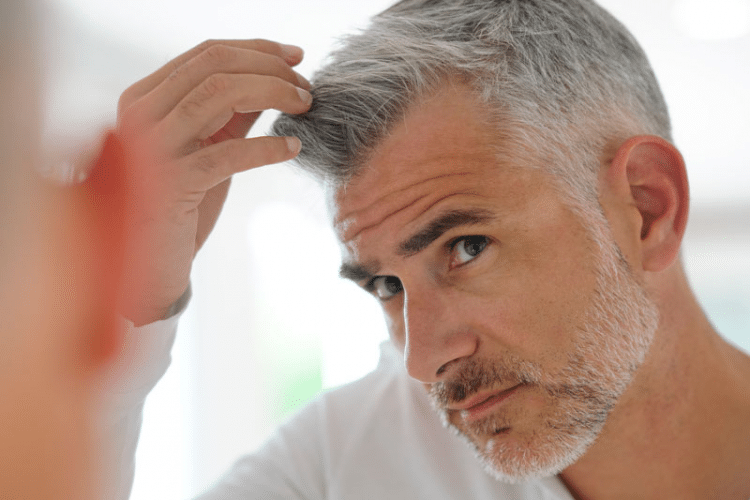Whether you are a man or a woman, hair is a potent symbol of seduction, and its loss is often the source of many complexes. Heredity, stress, disease, or hormonal imbalance, causes are numerous. Here is a brief overview of the most commonly implicated factors.
Heredity: The Main Culprit
When hair loss is hereditary, it is called androgenic alopecia (not to be confused with androgenic alopecia, which involves hair loss under the influence of male hormones). The follicles inherit a special sensitivity to the combined action of testosterone and an enzyme called 5α-reductase. Once these two elements meet, a new hormone called DHT is produced. A sensitized follicle will see its growth cycle disrupted, accelerated, and will end up getting tired; the hair then grows back more and more finely to end up disappearing altogether. With several finasteride options, now the solution is in front.
Secondary Causes of Alopecia: Hormones
Hormones fluctuate throughout our lives and can influence the health of our hair. Thus it is expected that at menopause, after childbirth, after taking contraceptive or replacement therapy, or in the case of a thyroid disorder, that female hormone decrease suddenly. The male hormones, hormones called androgens, then take over. One speaks in this case of androgenic alopecia. But, the production of hormones doesn’t need to change to trigger alopecia: it can also be hypersensitivity of the inherited follicle. This disorder affects men in 70% of cases.
The Stress
Here again, hormones come into play. Unregulated by significant stress, the adrenal glands will significantly increase the production of androgen hormones (male hormones) and disrupt the functioning of the follicle in individuals sensitized by heredity. The consecutive alopecia stress can manifest itself as a breeding ground. The extent of the fall will depend on the type of stress. While the stress of everyday life has long-term negative consequences on the general health of the hair, sudden and significant pressure causes a marked fall for up to 4 months after the event.
Chemotherapy
First of all, it is necessary to specify that all chemotherapy does not necessarily cause hair loss and that the onset or not of alopecia will depend on the protocol used. Also, the reactions to the treatment vary from person to person, depending on the terrain and their sensitivity to toxins. Hair usually begins to grow back a month after chemotherapy ends, at a rate of one centimeter per month.
Food Deficiencies
The dietary deficiency most often implicated in alopecia is iron deficiency. Without iron, the blood cannot be properly oxygenated, and the hair becomes dull and brittle. Women are the most at risk because they sometimes lose a significant amount of iron during menstruation and do not compensate enough through food.

